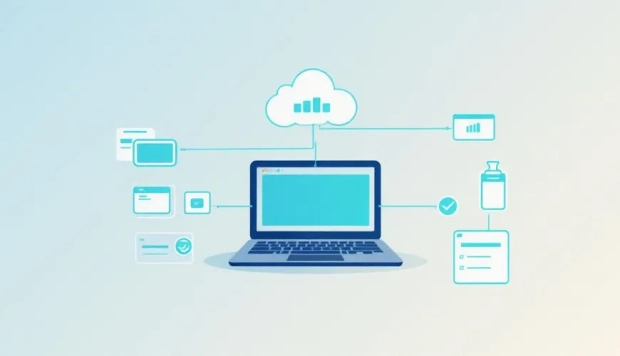Get the Skills You Need: A Practical Guide to Hiring Specialized Devs

Hiring skilled software developers is a crucial step in building a successful tech team. As technology continues to evolve at an unprecedented rate, the demand for specialized development skills has never been higher. Finding and hiring the right developers is often a challenging endeavor. Knowing where to look and how to evaluate candidates is paramount. This practical guide will offer insights into hiring specialized developers, ensuring that you choose the right talent for your projects.
Understanding the Role of Specialized Developers
Specialized developers possess unique skills tailored to specific fields within software development. From backend developers who focus on server-side logic to frontend developers who create user interfaces, each role requires a different set of technical proficiencies. Understanding these roles is crucial to match the right developer with your project needs. Citing recent industry surveys, it's clear that 70% of companies struggle to find adequately skilled technical talent to meet their project goals. When you hire a developer, you're not just filling a position. You are bringing in expertise that can greatly influence your project's success. A specialized machine learning developer is better suited for a project involving artificial intelligence than a generalist developer. By identifying your project's specific needs, you can begin to understand the type of developer you should look for.
Where to Find Specialized Developers
With the clarity of your project needs in mind, the next step is sourcing candidates. There are numerous platforms available that cater to specialized skill sets. Finding the right developer often comes down to knowing where to look and leveraging proven strategies, and according to Parallel Staff, tapping into pre-vetted talent pools can significantly streamline the hiring process. Companies seeking predictable hiring outcomes often choose platforms such as FatCat Remote, where pre-vetted developers are evaluated not only for technical skills but also for long-term team fit. Consider recruitment agencies focused on tech roles, as they maintain strong candidate networks and can help filter for quality. Participating in developer communities and attending industry events may lead to strong candidates who are actively exploring new opportunities. Expanding your search through these targeted channels raises the likelihood of hiring someone who fits both the role and your team.
Defining Your Project Requirements
Before beginning the hiring process, clearly defining the requirements of your project is vital. Start with outlining your project goals, technology stack, and any specific skill sets that may be necessary. The more comprehensive your project specifications are, the easier it will be to identify and attract the right candidates. Once you have a clear understanding of your needs, it's time to develop a job description that accurately reflects this scope. A well-written job description should detail the technical competencies required, such as proficiency in specific programming languages, familiarity with frameworks, and knowledge of tools or technologies relevant to your project. It is beneficial to describe soft skills, such as teamwork and communication abilities, that are equally important in a development environment. For example, some companies now even utilize VR soft skills training to assess and develop these crucial interpersonal abilities. This thorough clarity serves as a blueprint that ensures you attract candidates who meet your specific development requirements.
Evaluation and Interviewing Techniques
Once you have sourced potential candidates, the next crucial phase is evaluation. Screening resumes for relevant experience and qualifications is only the first step. Many applicants now use an AI resume generator to craft tailored, professional resumes that better highlight their skills and align with job requirements. Implementing technical assessments or coding challenges can provide insights into a candidate's capabilities. These exercises allow you to gauge their problem-solving skills and proficiency in real-world tasks. Consider a multi-layered interviewing process. The initial interview could focus on soft skills and cultural fit, while subsequent rounds can dive deeper into technical abilities. Utilizing collaborative coding platforms during interviews allows candidates to showcase their skills in real-time. This approach simulates a real work environment where teamwork and communication are critical.
Making the Hiring Decision
After completing the interviews and evaluations, you will need to make a thoughtful hiring decision. Reflect on the strengths and weaknesses of each candidate, and consider how well they align with your project requirements and company culture. Gathering feedback from other team members who interacted with the candidates can provide additional insights. When you select a candidate, clearly communicate the next steps, including salary discussions and onboarding processes. Clarity at this stage can reduce misunderstandings and set the foundation for a successful working relationship.
Onboarding Your New Developer
Once you hire a specialized developer, a well-structured onboarding process is vital to ensure they acclimate effectively. Onboarding should encompass introductions to the team members, training on company policies, and familiarization with tools and processes. This aids in a smoother transition and boosts the new hire's productivity from the outset. Establish regular check-ins to support your new developer as they settle in. Encouraging an open channel for questions can help mitigate early challenges they may face. A comprehensive approach to onboarding can significantly enhance the retention of your new talent and ensure that they contribute effectively to your project goals.
By following these guidelines, you can better navigate the complexities of hiring specialized developers. From understanding their roles to establishing a structured onboarding process, taking these steps can lead to building a highly effective tech team.



